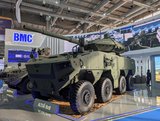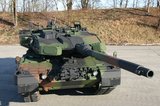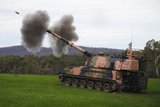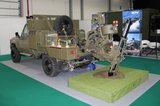FNSS to supply anti-tank vehicles to Turkey
FNSS Savunma Sistemleri is to supply anti-tank vehicles to the Turkish Ministry of Defence under a contract signed on 27 June.
The vehicles will be supplied for Turkey’s Anti-Tank Vehicle Project, which will involve the integration of Turkish anti-tank missiles with armoured vehicles equipped with anti-tank turrets developed specifically for the project.
The contract covers the delivery of 260 vehicles in tracked and wheeled configurations. The turrets will be developed with modern fire and command and control capabilities, and the turret will be equipped with a 7.62 machine gun in addition to ready-to-fire anti-tank guided missiles.
The Kaplan vehicle family will be the basis for the tracked vehicle, and the Pars 4x4 is under consideration for the wheeled vehicle.
The vehicles will be ballistic and mine protected, capable of conducting joint operations with armoured units, and will have a modular mechanical and electronic infrastructure that enables rapid adaptation of future potential requirements.
Design, development and prototype qualification processes will be completed in 2018, with serial production and delivery of the vehicles to be completed in 2020.
Related Equipment in Defence Insight
More from Land Warfare
-
![US Army plans Q2 prototype proposal request for its Mobile Tactical Cannon programme]()
US Army plans Q2 prototype proposal request for its Mobile Tactical Cannon programme
The US Army is seeking a mature 155mm, wheeled, self-propelled capability to replace the towed M777 howitzer in the Stryker, Mobile and Infantry Brigade Combat Teams as it targets a potential 498-unit acquisition goal.
-
![British Army’s Project Stokes 120mm mortar bids due in March 2026]()
British Army’s Project Stokes 120mm mortar bids due in March 2026
Project Stokes could see a new 120mm mortar capability enter British service, with domestic production and international partnerships central to competing bids.
-
![MKJ Warrior Series — The Nett Warrior Qualified Connector for Today’s Soldier Systems]()
MKJ Warrior Series — The Nett Warrior Qualified Connector for Today’s Soldier Systems
ITT Cannon’s MKJ Warrior connectors are designed for the harshest environments, delivering mission critical comms, navigation and USB data/power.























